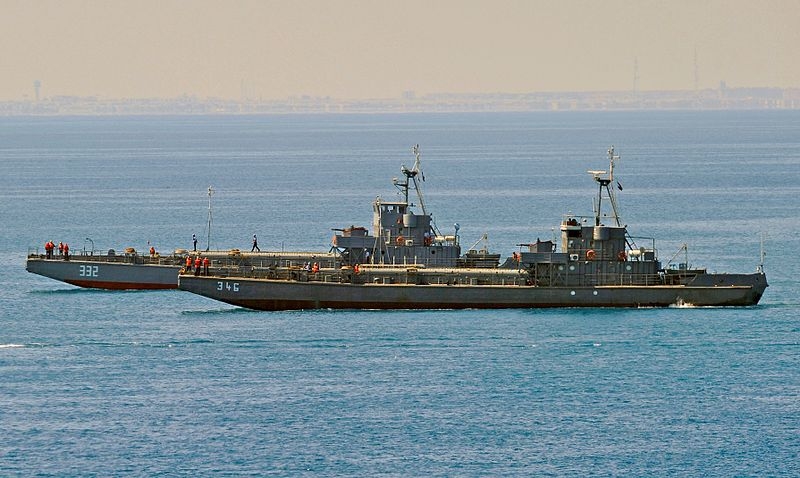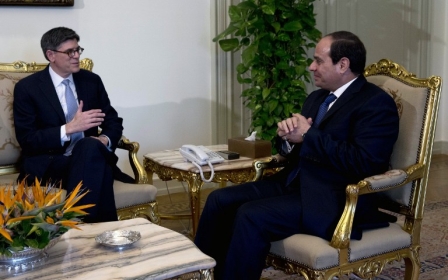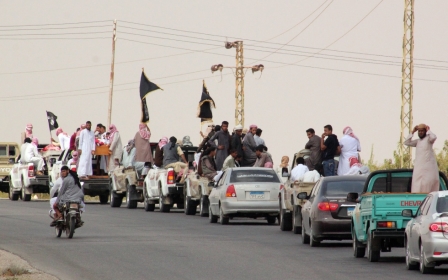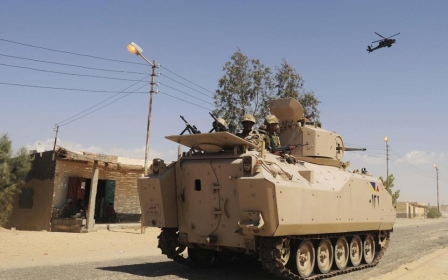'Terror' attack on Egypt naval vessel leaves 8 servicemen missing

The Egyptian military said one of its navy vessels came under "terrorist" attack in the Mediterranean on Wednesday, leaving five servicemen injured and eight others missing at sea.
Four boats used by the assailants were destroyed and 32 of the suspected militants were arrested and are under interrogation, the military said in a statement.
"Search and rescue operations have evacuated five wounded servicemen to a military hospital . . . and there are still eight personnel lost and the search continues," it said in the statement.
The incident took place early in the morning, off the coast of Damietta province where an increasing number of boats full of migrants hoping to cross the Mediterranean have been launched in recent months.
Since the ousting of former president Mohammed Morsi, there has been a stark increase in attacks against Egyptian policemen and soldiers.
Last August, militants reportedly attempting to disrupt the flow of ships through the Suez Canal, attacked a giant container ship called the Cosco Asia with rocket-propelled grenades, posting a video of the attack online. Although initial reports indicated that the ship had not been damaged, senior officials later told The Telegraph that two missiles had caused damage to the vessel which could have been serious had it been carrying fuel.
An earlier report by the official MENA news agency on Wednesday's attack reported that a naval vessel had been set alight in an exchange of fire with assailants about 70 kilometres from Egypt's shore. The air force, according to the news report, was called in to deal with the assailants.
It was not immediately clear what the naval boat was doing so far offshore, and whether it was on a routine patrol anticipated by militants.
A military source told AFP the assailants used "fishing boats" and did not appear to have deployed rocket propelled grenades or heavier weapons.
The Mediterranean Sea is used by drug traffickers and illegal migrant smugglers who have been intercepted by the Egyptian navy in the past.
There have been no recorded attacks at sea by the Sinai-based militants who launched an insurgency after the army overthrew Islamist president Mohamed Morsi last year.
The incident comes days after the main militant group, Ansar Beit al-Maqdis, pledged its allegiance to the Islamic State organisation in Iraq and Syria.
The group has focused its attacks on troops in Sinai, but have occasionally struck with car bombings and ambushes across the country.
Its pledge of allegiance to the Islamic State was the most significant regional show of support for the militants who control swathes of Iraq and Syria.
Created during the security vacuum following veteran Egyptian strongman Hosni Mubarak's overthrow in early 2011, Ansar Beit al-Maqdis has displayed increasing sophistication in its attacks despite a massive military crackdown.
Several of its members who carried out attacks, including an attempt to assassinate the interior minister last year, have previously fought and trained alongside Islamist rebels in Syria.
It is believed to have been behind a multi-stage attack on an army checkpoint in North Sinai last month that killed at least 30 soldiers, and wounded a senior officer.
Following the attack, the Egyptian government announced a state of emergency and closed the Rafah crossing into the Gaza Strip, the only route into the Palestinian territory not controlled by Israel.
The Egyptian army has started to clear an area along the Egypt-Gaza border at least 500 metres across and potentially up to 5 kilometres long to create a military buffer zone. More than 800 homes in Rafah will be destroyed in the process, with hundreds of families displaced.
Middle East Eye propose une couverture et une analyse indépendantes et incomparables du Moyen-Orient, de l’Afrique du Nord et d’autres régions du monde. Pour en savoir plus sur la reprise de ce contenu et les frais qui s’appliquent, veuillez remplir ce formulaire [en anglais]. Pour en savoir plus sur MEE, cliquez ici [en anglais].




